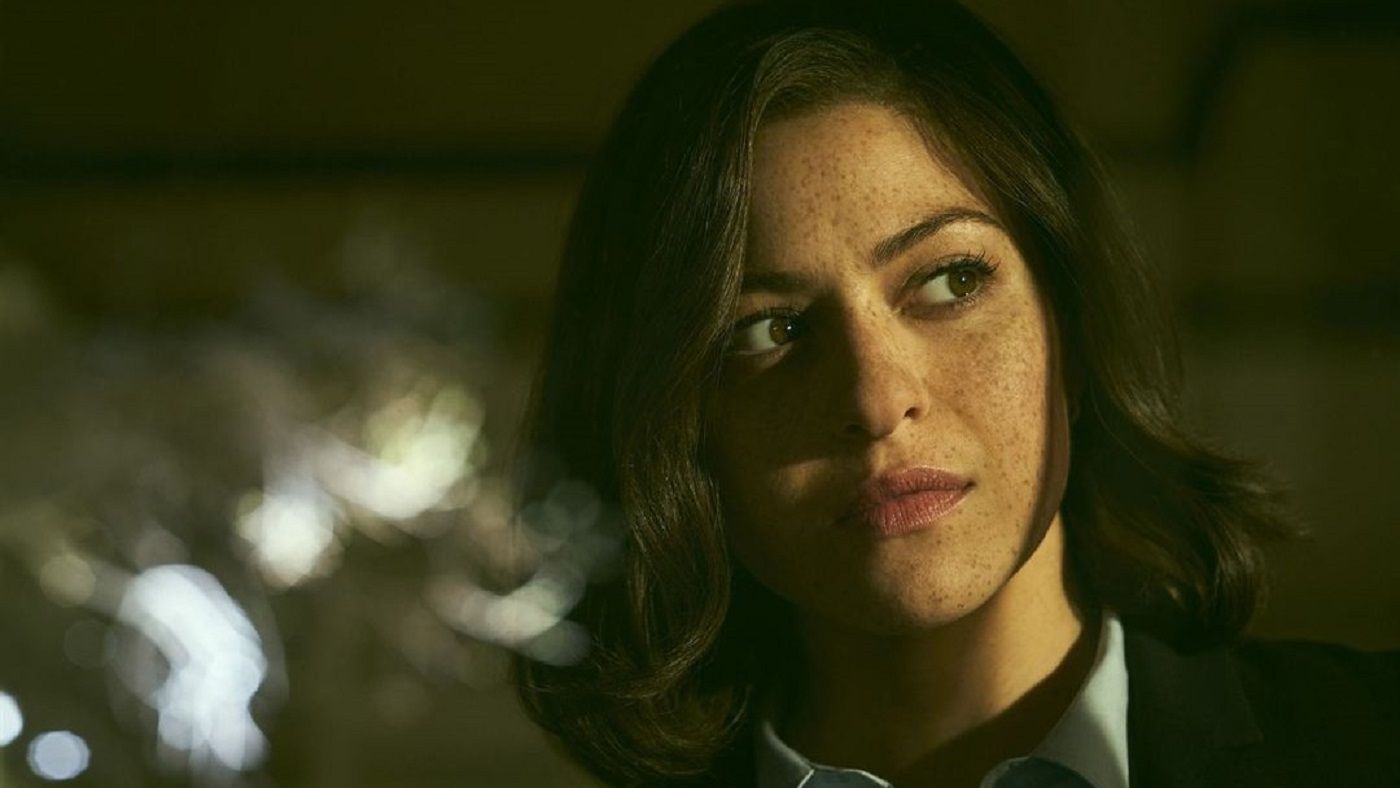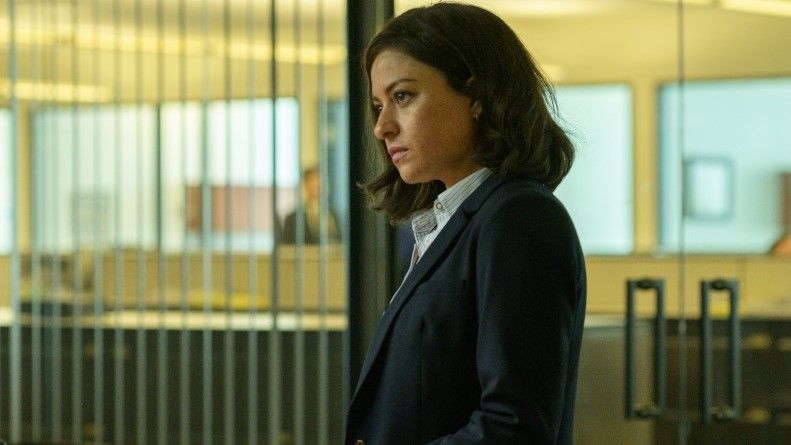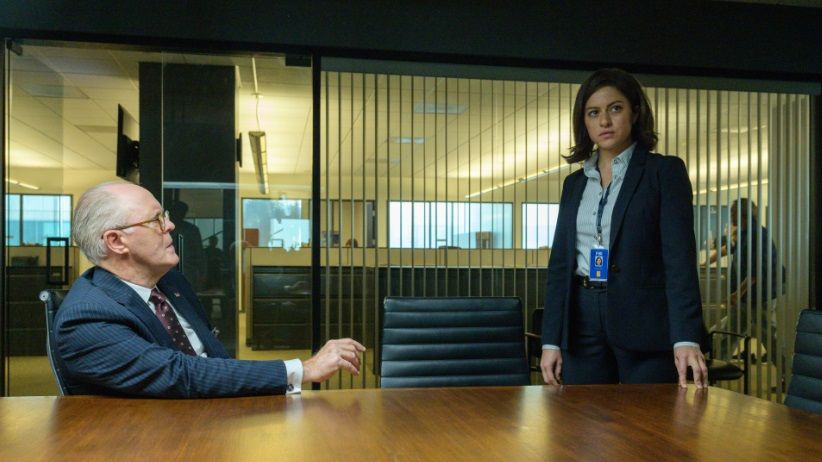Editor's note: The following contains spoilers for The Old Man Episode 3.
Continuing to prove that it is one of the better new series out there, The Old Man is the type of show you can watch just to get to see acclaimed actors chew up every line of dialogue they get. It is built around the solid foundation of having an old agent, played by iconic actor Jeff Bridges, though is further bolstered by the strength of its supporting cast. This can be seen in the first two episodes when Bridges has gone toe to toe with the also stellar John Lithgow. The show is at its most tense when the two are just having phone conversations with each other, which adds a deeper tension to the story. It doesn't even need them to share a room to completely capture our attention. However, the most recent phone call, in the third episode, shows there is another crucial member of the cast. We couldn’t give full praise to her in our review as much of what makes her so good would be a spoiler. Now that the episode has been released into the world, it is high time to acknowledge this powerhouse performance.
Alia Shawkat is a strong presence in everything she has been in, whether it was when she got her big break in Arrested Development or more recent gritty films like Green Room. Now, in The Old Man, we first see her come into the story as hardworking Agent Angela Adams. She works for Lithgow's Harold Harper, who is struggling to track down Bridges' Dan Chase. Confident and competent in her job on the exterior, there is the persistent feeling that something else is going on underneath it all. We now learn that she is actually Chase’s daughter Emily. Even though this makes total sense, as her being on the inside would offer her protection, it still came as a great shock. When we heard her character previously discuss with Harper that Chase’s daughter was dead, she did it so convincingly that we just assumed she believed it to be true. As a sucker for scenes where actors play characters that are themselves acting, this was one of the more glorious ones of recent memory. The way she had to be just as calm as ever, even as she was attempting to cover up her own existence, added a quiet sense of stakes.
What seemed to be a banal moment of conversation is made rather brilliant in retrospect, revealing just how much pressure has fallen on Emily’s shoulders for all of her life. She has had to keep up appearances in all aspects of who she is, making it appear as though she is just another cog in the machine that could easily make her a target when she least expects it. It is a deceptively simple high-wire act of character work that Shawkat makes look easy, instilling even the most basic of scenes with a greater sense of emotion underneath the facade Emily has to preserve. Even all the phone calls that she shared with Chase in the first two episodes become richer when you realize what was happening. It warrants a rewatch, though you may be kicking yourself for not realizing that it was her voice. It is clearly recognizable when you go back, even as it still seems slightly disguised to preserve the story's most significant reveal thus far. It comes in yet another phone conversation, this time between Emily and Amy Brenneman’s Zoe, who has become aware of who Chase actually is.
In an uninterrupted monologue from Shawkat, she shares how Emily's life was forever altered when she turned 18. The innocence of youth vanished when Chase told her about his violent past and how her parents were now in hiding. She is deliberate in her recounting of this moment, as if she has thought this speech through over and over again. Painfully honest, she shares how she initially was fearful of her father and only trusted him after convincing from her mother. It is a rationalization that seeks to put Zoe at ease, though also speaks to a greater sadness. Emily too has had to change her name, just like her father did, though now says this is “a small price to pay.” It is a speech Shawkat imbues with an almost cold and calculating sensibility, not allowing for any response before quickly hanging up. The brevity of it betrays fear as Emily looks in the rearview mirror of her car, where she makes the call to avoid suspicion. She can’t ever show any emotion about this to anyone, something felt in the heavy sigh she takes before wiping away any iota of tears before she returns to her double life. It is a great scene made so by just how sensitive Shawkat is to every nuance that is needed of her. While there are more showy performances, this one shines for its subtlety.
Even as the rest of the episode then descends into a chaotic fight sequence and a subsequent attempt by Chase to flee, this central performance by Shawkat is what grounds the story. She has captured a character who has had to be confined in all aspects of who she is to survive a harsh world that was not of her choosing. It makes clear that, even as it is Bridges who is our protagonist, the ripple effects of his decision threaten to subsume everyone around him. It is through Emily’s journey that we see how Chase’s selfishness is reflected back on him, bringing with it a steep cost that others have to bear for him. There is no escaping for those he has sucked into this life. Shawkat gives that shape and form, crafting a character from the ground up who is always having to play the game just to save her own skin. It is felt in every phone call with her father, conversation with her menacing boss, and the solitary moments she thinks she is alone. Her performance doesn’t just redefine the trajectory of the series, it makes it more comprehensively sinister to see how her character must continuously slip into deception or end up dead. A life of high-stakes secrets will take a toll on anyone, and Emily has had to adopt a steely disposition that is starting to sink into being more somber. Wherever her journey goes, the way Shawkat grapples with this emotional state is revelatory to witness.



